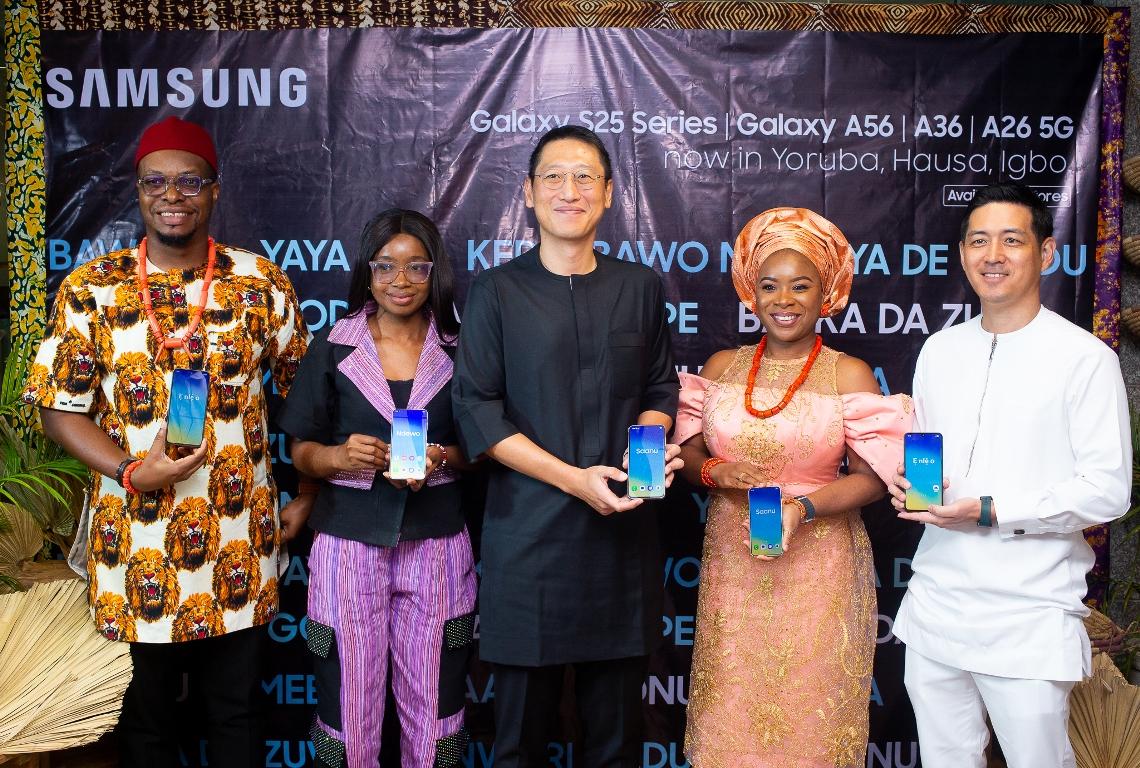Telecom
Reps Back Controversial Internet, Phone Spy Programme

The needlessly controversial bill on interception of electronic communication sponsored by the Federal Government yesterday passed second reading at the House of Representatives.
The so-called ‘lawful interception’ will give too much powers to the Nigerian Communications Commission (NCC) and security agencies to intrude into private communications of Nigerians such as telephonic calls, e-mail messages and such other electronic exchange of information like short messaging service (SMS) and multimedia applications in the name of enhancing national security, prevention of crime committal and facilitate criminal investigations.
President Goodluck Jonathan had in January last year forwarded the bill to the lower chamber for consideration, but it came up for debate only yesterday.
The bill essentially empowers security agents to intercept and record electronic communications between individuals and seize usage data from internet service providers and mobile networks as well as ask telecommunication companies to conduct surveillance on individuals and release user data to authorities.
If the Bill is enacted into law, authorities can intercept and record personal emails, text messages, instant messages, voice mails and multimedia messages, in order to facilitate a criminal investigation.
The bill defines “electronic communication” that could be intercepted to include “communication in electronic format, instant messages, short message service (SMS), e-mail, video, voice mails, multimedia message service (MMS), fax and pager.
Based on the bill, “interception” includes “listening to or recording of communication data of a computer or acquiring the substance, meaning or purport of such and any acts capable of blocking or preventing any of these functions.”
Mulikat Akande-Adeola, House Leader said bill seeks to provide an effective, unified and comprehensive legal, regulatory and institutional framework for the prohibition, prevention, detection, prosecution and punishment of cyber crimes in Nigeria.
Also supporting the bill, Rep Nkiruka Onyejeocha (PDP, Abia), implored her colleagues to support the passage bill to sanitise the Nigerian cyber space.
Consequently, the bill was unanimously passed as Emeka Ihedioha, deputy Sspeaker who presided over yesterday’s sitting, referred it to the committees on justice and information technology.
According to the bill, Section 15 (1) provides for a jail term of not less than one year or a fine of N2 million for “any person who, by means of a public electronic communications network persistently sends a message or other matter that (a) is grossly offensive or of an indecent, obscene or menacing character or causes any such message or matter to be so sent; or (b) he knows to be false, the purpose of causing annoyance, inconvenience or needless anxiety to another or cause.”
Also, the bill prescribes death sentence to a person who commits crime against Critical National Information Infrastructure, which is defined as “certain computer systems, networks and information infrastructure vital to the national security of Nigeria or the economy and social well-being of its citizens.”
However, if the offence does not result in death but leads to “grievous bodily injury,” the offender shall be liable to imprisonment for a minimum term of 15 years.
A life imprisonment also awaits “any person that accesses or causes to be accessed any computer or computer system or network for purposes of terrorism.” The bill says “terrorism” shall have the same meaning under Terrorism (Prevention) Act, 2011, as amended.
Telecom
Momoh, Uzoebo, Nwosu, Ibirogba, others for PAFON 2.0

The second edition of Payments Forum Nigeria (PAFON 2.0) is gathering momentum as organisers have unveiled a strong line of speakers.

Featuring keynote presentation, fireside chat, panel discussion, networking opportunities, PAFON 2.0 is scheduled to hold this week – Thursday, April 10, 2025 at the Function Room 1, Oriental Hotel, Lekki Road, Lagos from 9am-12(noon).
The event themed: “Bridging the Customer Experience Gap for Financial Inclusion Using AI”, aims at enabling knowledge sharing on key industry insights, issues, amongst key stakeholders, with the objective of ensuring a collaborative and proactive approach to push for policies that enable growth, tackling/mitigating fraud and limiting occurrences and losses in the payment industry.
Keynote:
Ebehijie Momoh (Mrs), managing director and chief executive officer, AfriGoPay Financial Services Ltd, will deliver the keynote address.
Special Guests:
Uche Uzoebo (Mrs), managing director and chief executive officer, Shared Agent Network Expansion Facilities (SANEF) Limited and Mrs. Chika Nwosu, managing director and chief executive officer of PalmPay (Nigeria), are the special guest of honour.
PAFON 2.0 Special Appearances: Olusoji Solomon Adeyemo, Azure Application and AI Specialist, Microsoft UK., Ibirogba Oluwagunwa, chairman, Lagos State Chapter, Association of Mobile Money and Bank Agents in Nigeria (AMMBAN), and Olusegun Gabriel Afolabi, co-founder & chief innovations architect, Face Technologies UK Ltd., will make special appearances at the event.
There will be a fireside chat featuring, Chukwuemeka Enoch Mbaebie, the convener, Lagos Blockchain Week, amongst other speakers, with Chidera Amuta, Marketing Manager, Vendocredit, as the host.
According to Mr. Chike Onwuegbuchi, co-convener of Payments Forum Nigeria, “this year’s theme, ‘Bridging the Customer Experience Gap for Financial Inclusion Using AI’, underscores the urgent need to safeguard digital transactions against emerging threats while ensuring seamless financial inclusion and innovation”.
Industry players such as Bankers, Fintech startups, mobile money operators, blockchain experts, Cybersecurity, etc., are among the expected attendees.
PAFON 2.0 participation is free, but pre-registration can be done here or use this link: https://docs.google.com/forms/d/1dE3ZHpSZcaZOL14oiI7s6OYbIeRTqNET7oH-NOm83Bc/edit
Telecom
Mafab Communications Has Launched 5G Services- Findings

Contrary to media some media reports yesterday, Mafab Communications, one of the companies granted Fifth Generation (5G) licences by Nigerian Communications Commission (NCC) has actually rolled out its 5G network services in Abuja since 2023.

According to Nigeria CommunicationsWeek findings, the rollout came almost a year since the telco paid $273.6 million for spectrum in the 3.5GHz band as part of a government auction.
Mafab Communications, has, not however kept to its promise to to strengthen its commercial operations by March 2025 as its services has remained skeletal since the media launch.
It said that it will roll out its high-speed 5G services through 102 operational sites strategically located in Kano and Abuja but that did not happen as at close of March.
An insider in the company, however assured that starting this month, subscribers with Mafab’s 5G routers will be able to enjoy ultra-fast connectivity on its expanding network.
This move aims to capture a wider share of Nigeria’s growing demand for 5G services.
Dr Musbahu Bashir, founder and chairman, Mafab Communications, said during the rollout launch that the telco will offer both voice and data services nationwide.
Additionally, Nigerian cities like Lagos, Port Harcourt, Enugu, Kano, and Kaduna have been listed for the deployment of 5G services while those not on the list will have services deployed at a later stage.
“The rollout of Mafab Communications 5G network is the beginning of immense opportunities for the country as it represents Nigeria’s capabilities and infinite possibilities,” he said.
“The prospect of increased job opportunities as a consequence of the value-chain benefits the technology will generate and offer is the dream we have all gathered here to launch today,” Bashir continued.
Telecom
Samsung Introduces Local Nigerian Languages to Galaxy Devices, Celebrating Cultural Diversity

Samsung Electronics has taken a bold step in enhancing user experience and inclusivity by introducing Hausa, Igbo, and Yoruba as official language options on selected Samsung Galaxy devices.

L-R: Stephen Okwara, Head, Product Management, Mobile Experience, Samsung Electronics West Africa; Joy Tim-Ayoola, Group Head, Mobile Experience, Samsung Electronics West Africa; Tae Sun Lee, Samsung Electronics West Africa CEO; Oge Maduagwu, Head of Marketing Samsung Electronics West Africa, and Nathan Lee, Regional Business Lead, Mobile Experience, Samsung Electronics West Africa, at the launch of Nigeria local language integration on Galaxy S25, A56, A36, and A26 devices, on April 03, 2025.
The feature, which is now available on the Galaxy S25, A56, A36, and A26 devices, reaffirms Samsung’s commitment to delivering innovative technology that speaks the language of its users.
With this groundbreaking update, Samsung users across Nigeria can now navigate their smartphones in their preferred local language, making technology more accessible, while also upholding our cultural heritage.
A Celebration of Culture and Technology
To mark the launch, Samsung hosted a cultural-themed press briefing featuring traditional music, local cuisine, and a showcase of the new language feature. Employees and guests attended in traditional Yoruba, Igbo, and Hausa attires, celebrating Nigeria’s rich cultural diversity.
Samsung also announced plans to expand local language support to more devices in the near future, reinforcing its dedication to making technology more inclusive for African users.
Empowering Users Through Language
The integration of Hausa, Igbo and Yoruba on Samsung devices reflects the brand’s mission to bridge the digital gap and enhance user engagement. Speaking at the press conference, Oge Maduagwu, Head of Marketing, Samsung Electronics West Africa, said, “At Samsung, we understand that technology is most powerful when it is accessible to all.
“By incorporating our local Nigerian languages, we are making our devices more intuitive and relatable, ensuring that millions of Nigerians can interact with their smartphones in the language they love and understand best”.
Seamless Language Transition on Galaxy Devices
Stephen Okwara, Head of Product Management, Samsung Electronics West Africa added, “The new local language feature is designed to deliver a seamless user experience, allowing customers to easily switch between languages. Users can activate Hausa, Igbo, or Yoruba on the Galaxy S25, A26, A36, and A56 by navigating to: Settings > Language & Input > Select Language
“This update enhances smartphone usability, particularly for those who prefer their native language over English, ensuring greater digital inclusivity, enhancing digital literacy and encouraging more users to engage with technology in their native tongues” He concluded.
Availability
Customers can visit all Samsung Experience Stores or authorized retailers in Nigeria to learn more and experience the feature firsthand.

 News2 days ago
News2 days agoUS Cancels Visas for All South Sudanese Passport Holders

 News2 days ago
News2 days agoAOT Issues Bench Warrant against Sanusi, Aero Contractors MD

 News2 days ago
News2 days agoMeningitis Outbreak Kills 151 in Nigeria – NCDC

 News2 days ago
News2 days agoAfrimash Launches USSD Code to Revolutionize Poultry Farming and Combat Counterfeit Farm Produce

 News2 days ago
News2 days agoSERAP Calls on Tinubu to Reject $1.08Bn Loan, Probe Missing Funds

 General News2 days ago
General News2 days agoUniversity Don Seeks Ban of Smartphones, Social Media in Schools

 News2 days ago
News2 days agoNigeria’s Debt Escalates to N144.67 Trillion, Fueled by Borrowing Surge

 General News2 days ago
General News2 days agoAmid Rising Investor Confidence in Nigeria, Woodhall Capital Foundation Trains Captains of Industry


























